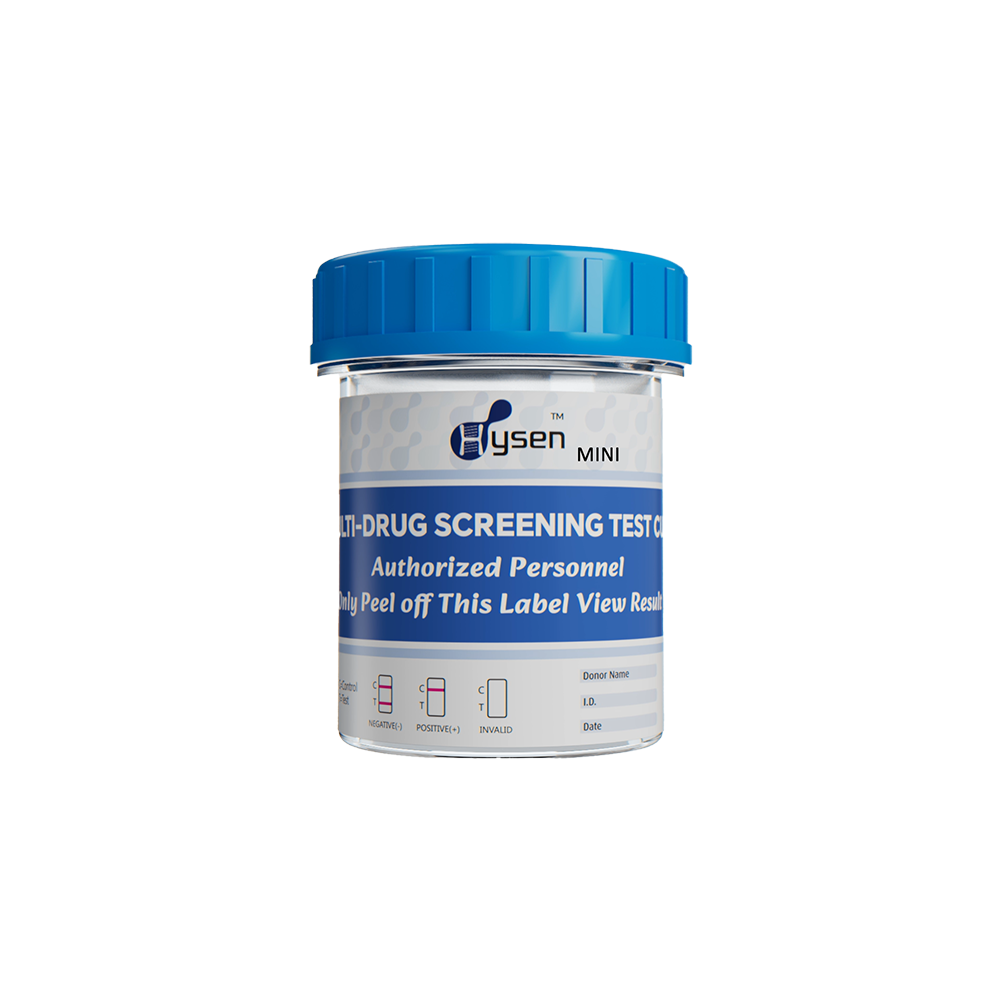Introduction to Drug Sample Adulteration
The issue of drug sample adulteration is a significant concern in both forensic and clinical settings. Adulteration involves the intentional alteration of drug samples to produce false-negative results in drug testing. This practice can have severe implications for public health and safety, as well as for the integrity of drug testing procedures. This article examines the specific tests available for identifying adulterated drug samples and discusses their effectiveness and limitations.
Common Methods for Drug Adulteration
Techniques Used by Drug Users
Drug users employ various methods to adulterate their samples, including dilution, substitution, and the addition of foreign substances. These techniques are designed to evade detection and create misleading test results. Dilution typically involves consuming large volumes of water or diuretics, while substitution might involve replacing one's urine with synthetic or drug-free urine. The addition of chemicals such as bleach or vinegar is also a known tactic to interfere with drug detection.
Market Availability of Adulterants
The availability of adulterants on the black market complicates the drug testing process. Custom solutions and commercial products claim to mask the presence of drugs, challenging laboratories to effectively counteract these strategies. Suppliers of these products often promise anonymity and guaranteed negative test results, increasing the difficulty of maintaining accurate testing standards.
Specimen Validity Tests: First Line of Defense
Specimen Validity Tests (SVTs) are employed as an initial measure to detect adulteration in urine samples. These tests check for abnormalities in specific parameters, including temperature, creatinine levels, specific gravity, and pH. Abnormalities in these parameters can indicate dilution or substitution, prompting further investigation.
Advanced Analytical Techniques for Detection
Gas Chromatography-Mass Spectrometry (GC-MS)
Gas Chromatography-Mass Spectrometry (GC-MS) is a commonly used confirmatory test that provides precise identification of substances within a sample. Highly sensitive and specific, this technique can distinguish between genuine and adulterated samples, providing a strong defense against false negatives.
Liquid Chromatography-Mass Spectrometry (LC-MS)
LC-MS is another powerful technique used in drug testing laboratories. It offers high-resolution screening and can detect a wide range of substances, making it invaluable in identifying adulterants. With advancements in technology, this method is becoming increasingly reliable and accessible for routine testing.
Infrared and Spectroscopic Methods
Fourier-Transform Infrared Spectroscopy (FTIR)
FTIR is an innovative technique that uses infrared radiation to analyze the molecular composition of drug samples. Particularly effective for identifying a wide range of drugs and contaminants, FTIR is gaining popularity as a non-destructive testing method. This custom approach allows for detailed analysis without altering the sample.
Raman Spectroscopy
Raman spectroscopy offers rapid and non-invasive analysis, making it suitable for point-of-care settings. It can detect various adulterants by analyzing the vibrational properties of molecules. Its portability and ease of use make Raman spectroscopy a promising tool for on-site testing.
Challenges in Detection and Legal Implications
Technical and Ethical Issues
While advanced techniques are available, technical challenges such as the detection of new adulterant compounds persist. Ethical concerns also arise, as the use of certain testing methods may infringe on individual privacy. Balancing these factors is crucial for laboratories and testing facilities.
Regulatory Framework and Compliance
Adhering to legal standards and regulations is essential to ensure the credibility of drug testing processes. Laboratories must continually update their methodologies and technologies to comply with evolving guidelines set by regulatory bodies.
Harm Reduction Strategies through Drug Checking
Implementing Drug Checking Services
Drug checking services aim to provide transparency about the content of drug samples. These services can alert users to the presence of harmful adulterants, contributing to harm reduction and public health safety. Factory-level implementation can standardize procedures and promote widespread accessibility.
Community Engagement and Education
- Educating communities about the risks associated with drug adulteration.
- Collaborating with health services to disseminate information about safe drug use practices.
Emerging Technologies in Drug Testing
Innovative technologies are continually being developed to enhance the accuracy and efficiency of drug testing. Portable devices capable of high-resolution analysis are being explored as potential solutions for on-the-ground testing. These advancements promise to bolster testing capabilities and ensure more reliable results.
Public Health and Safety Concerns
Impact on Public Health Systems
Accurate drug testing is crucial for public health systems, as it informs policy decisions and treatment strategies. Adulterated samples undermine these efforts, making it imperative to adopt robust testing methods. Suppliers play a critical role in providing reliable testing products to ensure public health safety.
Preventing Drug-Related Incidents
Identifying adulterated drug samples can prevent adverse drug reactions and overdose incidents. Public awareness campaigns and effective testing protocols can mitigate these risks, contributing to a safer community environment.
Conclusion and Future Directions
As drug adulteration techniques continue to evolve, so too must the strategies for detecting them. By integrating cutting-edge technologies and maintaining stringent legal compliance, laboratories can enhance their ability to identify adulterated drug samples. Future research and development will likely focus on improving the sensitivity and accessibility of testing methods, ensuring comprehensive protection against adulteration.
Hysen Provide Solutions
Hysen offers a comprehensive range of solutions for accurately identifying adulterated drug samples. Our advanced analytical technologies and custom testing products are designed to meet the highest standards of quality and reliability. Partnering with industry-leading suppliers, we ensure that our clients receive the most effective tools in the fight against drug adulteration. With Hysen's expertise, you can trust in the integrity of your drug testing results and safeguard public health.
User hot search: Adulteration Drug Tests
Post time: Jul-28-2025
















